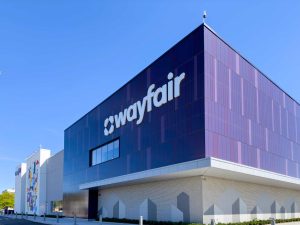When families suddenly find themselves with a massive influx of cash due to a liquidity event, like the sale of a business, receiving a large inheritance, or simply find that their growing wealth exceeds their ability to manage it internally, they may decide it’s time to join a multi-family office. Multi-family offices handle the wealth administration of ultra-high-net-worth families and typically are either a registered investment advisor, which is regulated by the SEC, or a trust company, regulated by the states.
Due to the growing ranks of wealthy individuals and families in recent years, many financial services firms are now using the terms “family office” or “multi-family office” as a marketing ploy to signal they serve wealthy clients. But the reality is that many firms that call themselves multi-family offices these days are not. Probe beneath their marketing pitches and you’ll find their average account sizes are in the $5 million to $10 million range. This is great for basic wealth management, but not enough to require the comprehensive services of a true family office.
Here are six questions you should ask before signing on with any firm calling themselves a multi-family office.
What Services Do You Provide?
In addition to financial planning and investment management, a multi-family office’s services should include tax planning and preparation, trust and estate planning, insurance, family governance, family learning, philanthropy, and helping a family define its mission and values. A real multi-family office includes a team of experts on staff as well as a roster of outside specialists across a range of needs, all of which are coordinated by the multi-family office.
How Does Your Firm Make Money?
The ways in which a multi-family office makes money is an important question many families fail to ask, and many firms will bob and weave with their answers. It’s important to determine whether this firm is going to make money for you or vice versa. If, in addition to the provided services, the multi-family office is also selling you investments or other financial products, then the firm often is making extra money off of your assets. This has to be disclosed, but it’s often done in ways that are hard to find.
How Much Revenue Do You Generate From Investments That You Place Your Clients In?
Related to the previous question, many firms will describe their investment selection as open architecture. A true open architecture platform is a marketplace of investment products that compete on their ability to meet a client’s needs, with the multi-family office remaining agnostic as to which products go into your portfolio.
Many multi-family offices describe their investment platforms as open architecture, even though many of their clients’ assets are run by internal fund managers. On top of that, some outside fund managers used by these firms pay them 12b-1 fees, which are marketing dollars used to reward intermediaries for selling a fund’s products.
Are You A Fiduciary?
Being a fiduciary means nothing more than putting a client’s interests first, but not everyone who calls themselves a financial advisor acts as a fiduciary. In some firms the individuals providing financial advice are also salespeople who earn commissions by selling their employers’ financial products. In choosing a multi-family office make certain the firm is a true fiduciary whose only compensation comes from the advice and other services for which you are paying.
What Is Your Ownership Structure?
This is an important question because a firm owned by its management team and founders is likely to have different goals and strategies than one owned by outside investors such as a private equity firm. That’s not to say that one type of ownership is better than another, but that the ownership should be transparent. Be sure to ask how much of the multi-family office is owned by private equity or other outside investors.
What Percent Of Your Clients Look Like My Family And How Can You Prove That To Me?
This question isn’t about physical appearance, but similarity of situation and experience. Ideally, you want to find a multi-family office who has worked with families like yours with a similar net worth, wealth structure complexity, and family dynamics.
Next Steps
If you are satisfied with the answers you’ve gotten to the previous questions, there’s still more to do before entrusting your assets. Ask for references and check them vigorously. Make sure you understand where the firm adds value. Determine what its strengths and weaknesses are because no firm is great at everything. Ultimately you want to find a multi-family office where the strengths match your needs and the weaknesses won’t affect you.
Read the full article here
















